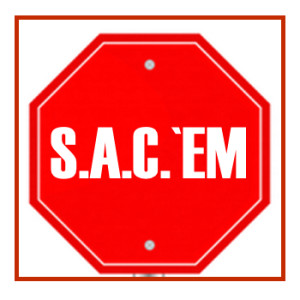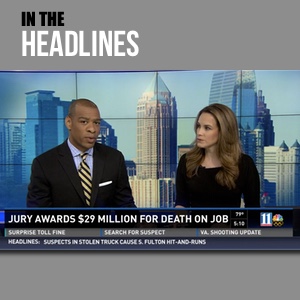 Hotel owners and managers are responsible for providing guests with a safe and secure premises during their stay. Lodging magazine encourages hotel owners to implement 5 safety precautions to protect guests during their stay:
Hotel owners and managers are responsible for providing guests with a safe and secure premises during their stay. Lodging magazine encourages hotel owners to implement 5 safety precautions to protect guests during their stay:
1. Update locks. Locks that can track who goes in and out of rooms can serve as a deterrent to theft. “When employees realize there’s an audit process on door security, it makes rooms less prone to theft,” Callaghan says. Other upgrades include automatic deadbolts, which can better prevent external threats from thieves, or systems that eliminate the need for master keys.
2. Make time for safety meetings. Perhaps as part of a regular meeting, schedule time to talk about guest safety. Part of this time could also be spent watching training videos, such as those produced by Safety Source Productions. These videos, accompanied by handouts, are a low-cost way to share information about guest safety and can train employees about how to spot suspicious behavior.
3. Monitor activity with software. Having closed-circuit television to monitor the property doesn’t matter too much if no one is looking at the monitors. Recent innovations in software have solved that problem. Coupled with software, video cameras can now recognize activity in an area and provide an alert. One example: the system can alert when there is activity in a valet parking area. Other options include using a third party to monitor the exterior of the hotel. Some of these systems have voice command capability, where operators can see and warn off people captured on surveillance.
4. Evaluate and improve—quickly. Darrell Clifton, director of security for the 1,572-room Circus Circus Reno Hotel and Casino in Nevada, conducts weekly reviews of the property and even has checklists for staff to ensure areas, such as stairwells, are clean, safe, and well lit. “We concentrate on our liability,” Clifton says. “If we know of something that’s happened, if someone was robbed or there was an accident, that area is quickly addressed. We can’t ignore it. We do something immediately to protect from another event happening.”
5. Meet and greet. One of simplest, but most effective, ways of securing a property is to provide excellent customer service. “Engage customers you encounter,” Clifton says. “Ask them about their stay and if there’s anything you can do to help. You don’t have to throw more labor at security. Just make employees a little smarter.” By talking with people on your property, staff can determine if there’s a non-guest who may intend to commit a crime. Employees should also look out for people who don’t fit the profile of the hotel’s typical guest.
Read Complete List of Hotel Safety Tips at Lodging Magazine
We’ve Recovered Millions for Victims of Security and Safety Negligence…Contact us Now for a Free Consultation.
 The Murray Law Firm has an extensive and successful record representing victims of property security and safety negligence. We have recovered millions of dollars for our Clients, and we recently obtained a $29.25 million dollar verdict for a victim of an unsafe property. We offer our legal assistance, if desired.
The Murray Law Firm has an extensive and successful record representing victims of property security and safety negligence. We have recovered millions of dollars for our Clients, and we recently obtained a $29.25 million dollar verdict for a victim of an unsafe property. We offer our legal assistance, if desired.
We represent our Clients on a contingency agreement, which generally means that no fees or payments are owed until and unless we recover. Anyone seeking further information or legal representation is encouraged to contact us via e-mail (click here) or by telephone at 888.842.1616. Consultations are free and confidential.

Choosing the Right Attorney
Selecting the right attorney for you or your family is highly important. You must feel confident that the attorney you hire has a complete understanding of the law applicable to your particular case, and has successful experience in handling such cases.
Important: Do not hire a lawyer who has violated the Rules of Professional Conduct!!!
You should not hire an attorney who calls you or visits you unsolicited, or anyone that contacts you directly to offer legal services. This activity is strictly prohibited by Rule 7.3 of the American Bar Association (ABA) Model Rules of Professional Conduct, which states as follows:
 A LAWYER “SHALL NOT” CONTACT A PROSPECTIVE CLIENT THROUGH A “LIVE TELEPHONE” OR AN “IN-PERSON” VISIT.
A LAWYER “SHALL NOT” CONTACT A PROSPECTIVE CLIENT THROUGH A “LIVE TELEPHONE” OR AN “IN-PERSON” VISIT.
– RULE 7.3, ABA MODEL RULES OF PROFESSIONAL CONDUCT.
If an attorney, or someone acting on behalf of an attorney, contacts you in this manner, that attorney is in violation of this Rule. This unethical and unprofessional activity on the part of the lawyer is good sign that you should stay away. It is imperative that you are represented by an attorney who is capable of advocating for you within the confines of the law, and an attorney who fails to abide by the Rules of Professional Conduct is probably not the best fit. In fact, any such attorney should be immediately reported to the local State Bar Association. If you have been contacted in such an unsolicited manner, contact us and we’ll assist you in filing a report.
Contingency Fees Disclaimer: “Contingent attorneys’ fees refers only to those fees charged by attorneys for their legal services. Such fees are not permitted in all types of cases. Court costs and other additional expenses of legal action usually must be paid by the client.”

 The Legal Herald
The Legal Herald


 Hotel owners and managers are responsible for providing guests with a safe and secure premises during their stay.
Hotel owners and managers are responsible for providing guests with a safe and secure premises during their stay.  The Murray Law Firm has an extensive and successful record representing victims of property security and safety negligence. We have recovered millions of dollars for our Clients, and we recently obtained a $29.25 million dollar verdict for a victim of an unsafe property. We offer our legal assistance, if desired.
The Murray Law Firm has an extensive and successful record representing victims of property security and safety negligence. We have recovered millions of dollars for our Clients, and we recently obtained a $29.25 million dollar verdict for a victim of an unsafe property. We offer our legal assistance, if desired.

 Gas station and convenience store robberies have increased over the last 10 years, according to FBI and NACS reports. As such, it is crucial convenience store owners take proper safety and security precautions to protect employees and patrons from violent crime.
Gas station and convenience store robberies have increased over the last 10 years, according to FBI and NACS reports. As such, it is crucial convenience store owners take proper safety and security precautions to protect employees and patrons from violent crime. The Murray Law Firm has an extensive and successful record representing victims of workplace violence and retail security negligence. We have recovered millions of dollars for our Clients, and recently obtained a $29.25 million dollar verdict for a victim of an unsafe property. We offer our legal assistance, if desired.
The Murray Law Firm has an extensive and successful record representing victims of workplace violence and retail security negligence. We have recovered millions of dollars for our Clients, and recently obtained a $29.25 million dollar verdict for a victim of an unsafe property. We offer our legal assistance, if desired.